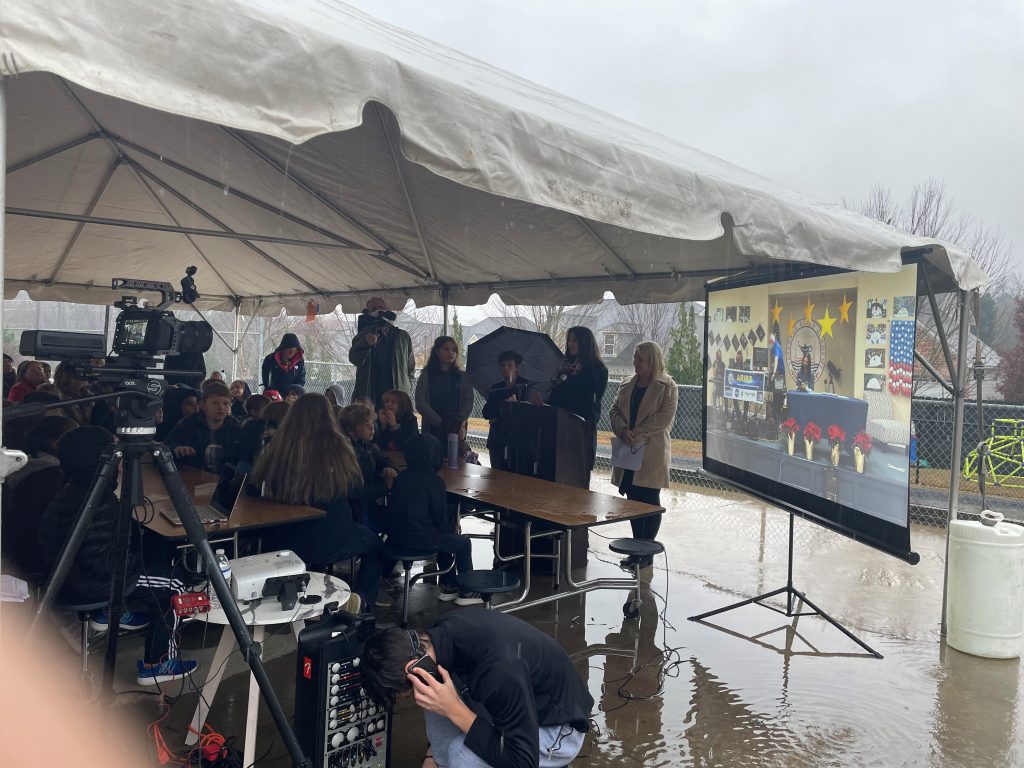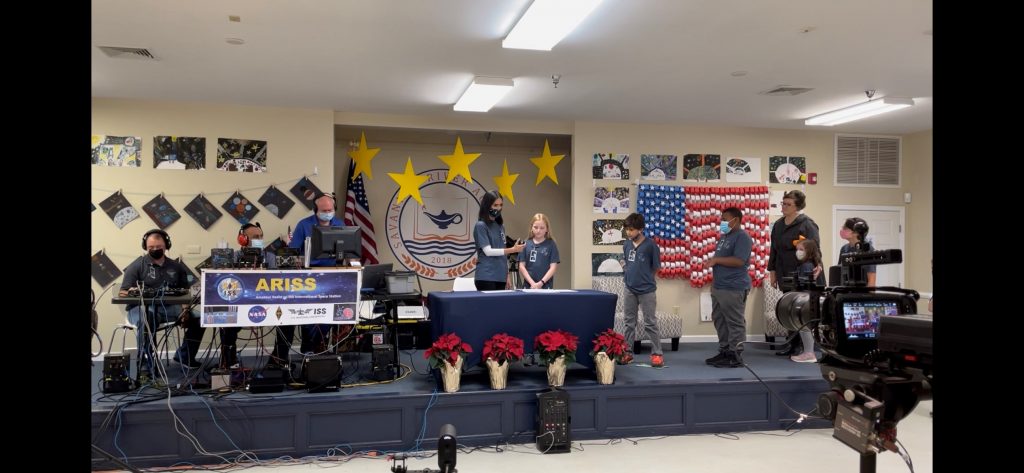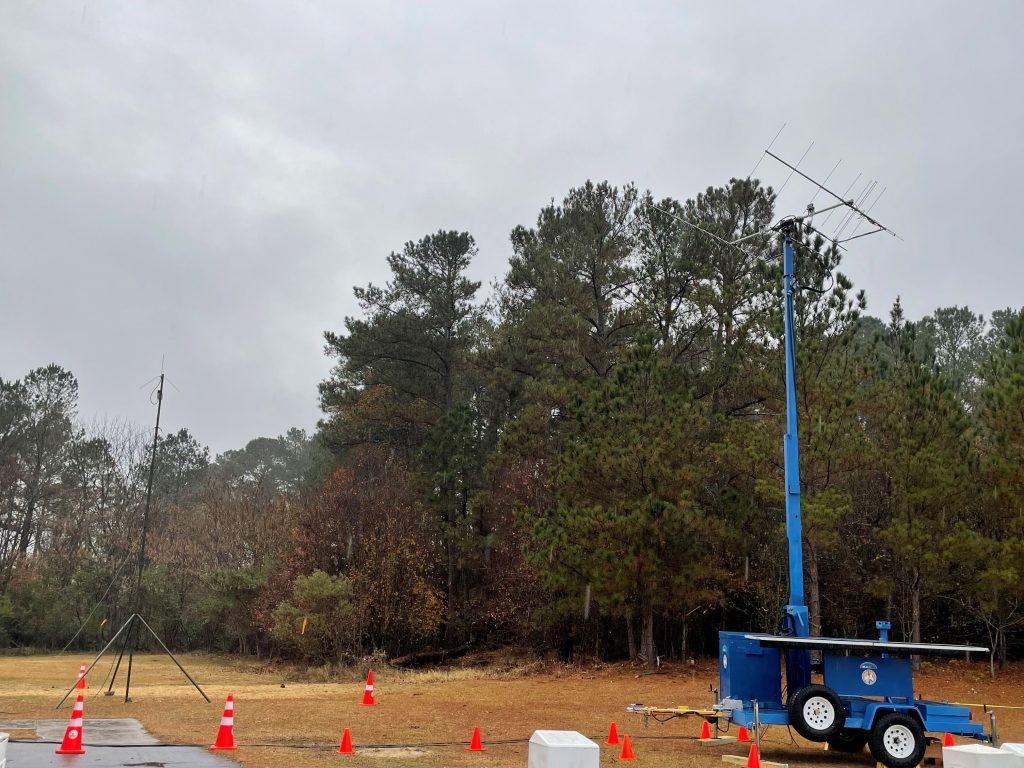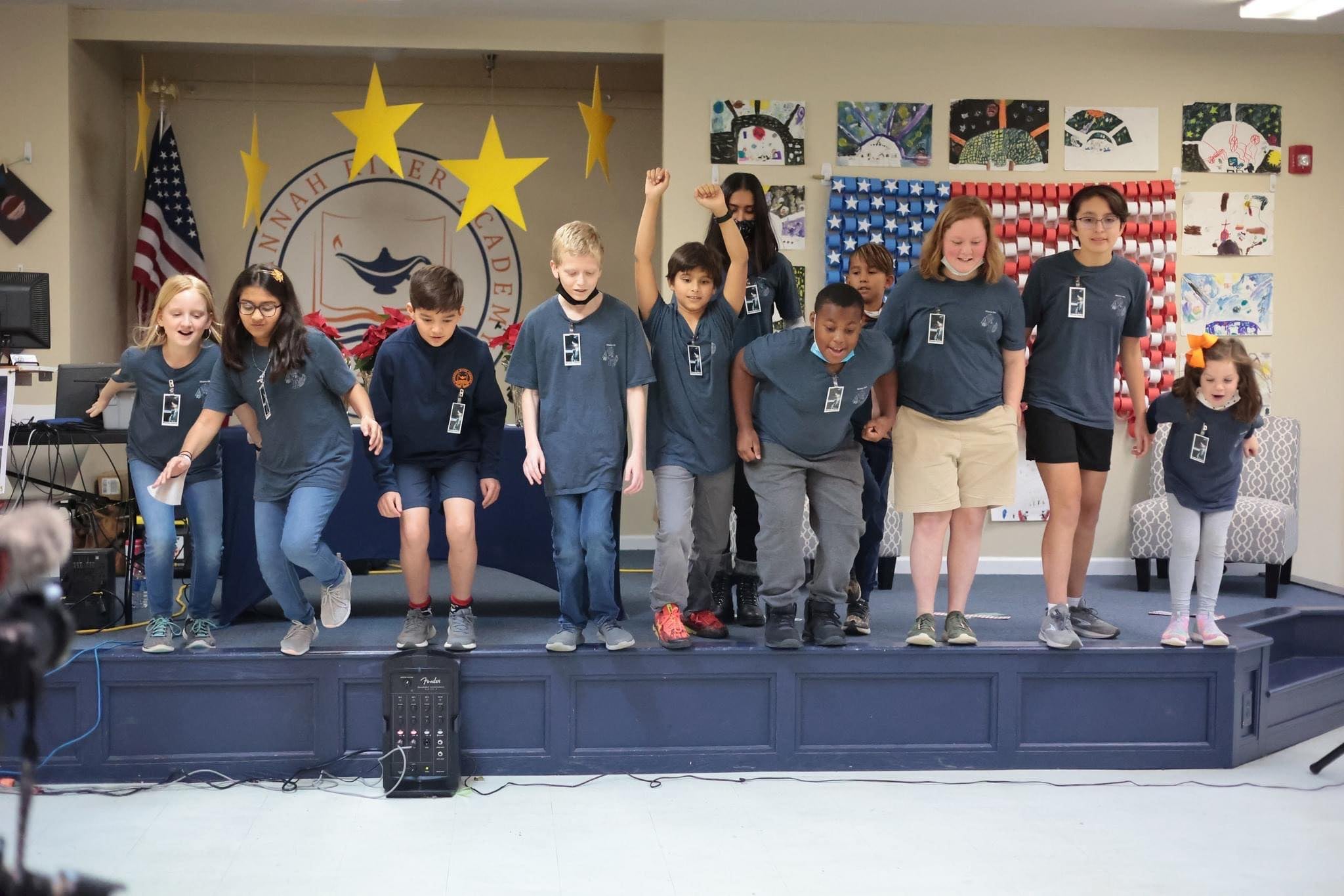Students at Savannah River Academy had burning questions for an astronaut at the International Space Station – like whether he could light birthday candles in space or whether a spacesuit was comfortable.
“Boy, I wish we could light birthday candles, but that’s one thing we can’t do,” said astronaut Thomas Washburn in response to student Khadija Kjan’s question. “We don’t light fires in space, even tiny little fires like on birthday candles because we don’t have any windows and no place to go in case things catch fire.”
On Friday, nearly a year of preparation, planning and learning came to fruition for students as they interviewed Washburn aboard the International Space Station via amateur radio.
“How has being on the ISS affected your life perspective on Earth?” asked student Dayea Matocha.
Washburn also responded that life and Earth now seem even more special.
“It’s made me fall in love with my planet,” said Washburn. “You realize when you see outside the earth and see all the stars and planets, it makes humanity feel very precious and very small.”

Ten students, ranging from kindergarten through sixth grade, had the opportunity to contact astronaut Washburn aboard the ISS. The school established contact with Washburn at approximately 10:09 a.m. as the ISS orbited above the school.

The students gathered in the SRA building, along with attending parents, members of the Amateur Radio Club of Columbia County and the American Radio Relay League. Science teacher Nasib White admonished the audience to keep silent, and to applaud by signing with waving hands. The parents and kids would make up for it after it was all over, with a burst of cheers and applause. The students got in line to walk along the stage and present their questions to Washburn.
The conversation between Washburn and the students was only about 10 minutes. The ISS travels at about 17,500 mph, and could only be reached while over the horizon. Special antennae, provided by the North Fulton Amateur Radio League, was set up next the building to track the ISS.
The non-sectarian private school in Grovetown participated in the Amateur Radio on the International Space Station Program, which promotes educational activities as part of NASA’s Science, Technology, Education and Math initiative.
The event is the result of coordination largely between the school and the ARRC, which has been visiting the school frequently over the past year to train students in the use of amateur radio.
“We were meeting every other week,” said Dan Marshall, president of the ARCCC. “We gave them lessons about radio theory, about antennas, about call signs, all different aspects of ham radio.”
As the date of the event neared, the classes with the ARCCC focused more on topics directly related to the contact, which had the children learning more about how the radio waves react and reach the space station.

Teacher Ashley Carver notes that the coordination for the contact was intricate, with a 19-page application submitted in November of 2020. After the school received notice from ARISS that the Savannah River Academy had been accepted, it began planning the curriculum for what Carver called a “year full of amazing learning.”
Carver also says that the school intends to continue connecting with the Amateur Radio Club of Columbia County for future collaborative learning opportunities.
“It has such an emotional experience,” said Carver. “I’m so happy and proud of these kids. They persevered through COVID and restrictions and this and that. And every time NASA said no, we said, ‘Okay, well, how do we have to do it this way?’ I mean, it really has been flawless experience. A once in a lifetime opportunity.”
Skyler Q. Andrews is a staff reporter covering Columbia County with The Augusta Press. Reach him at skyler@theaugustapress.com.










